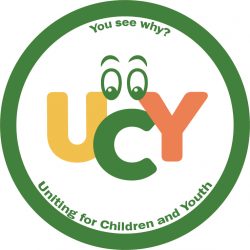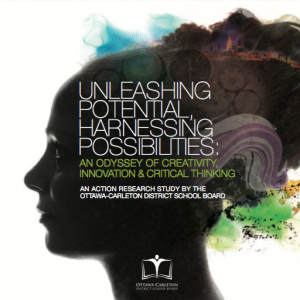Unleashing Potential, Harnessing Possibilities
“This report is written in plain English, in a style that is designed to be inviting and inclusive of all stakeholders. Imagination, creativity and innovation, on which this report focuses, can best be achieved when all stakeholders are encouraged to provide their unique insights and contributions. As today’s school communities extend well beyond a classroom’s walls (and, thanks to technology, well beyond our geographical borders), this report has been written and designed so that anyone—regardless of whether they work in the field of education or not—can easily read it, understand what it means for them, and join in the conversation.”
These are the opening words of the OCDSB document Unleashing Potential, Harnessing Possibilities referred to in the Ottawa Citizen article titled Ottawa’s public school board needs a plan that inspires published Friday, January 25th, 2019. This document can be seen as a plan that inspires, but the article is saying that the OCDSB has not delivered on it. Producing a document like this is the easy part of a change effort. Effectively implementing it is the hard part, and as the above excerpt indicates it requires the involvement of all stakeholders.
The OCDSB has at times been accused of being less than genuine about listening to stakeholders. True or not, if this is the perception, then people will tend not to participate in public consultations. Given the low voter turnout rate with the recent school board elections, and the lack of parental involvement in school councils, it appears that the OCDSB has a huge problem with people thinking that their voices don’t matter.
In June 2018, two professors at the Ontario Institute for Studies in Education released the results of a survey they did of public opinion about education in Ontario. They found only fifty percent of people were somewhat or very satisfied with their schools. This means that fifty percent are not satisfied, and we need to hear from them to create a public education system that is equitable and inclusive for everyone. For this to happen, marginalized and disenfranchised people need to believe that they will be heard and respected if they speak out. We not only work to improve our schools by genuinely listening to everyone and fully considering all views, we work to cultivate a healthier democracy, one that is far more participatory.
In her book Education, Student Rights and the Charter, Ailsa Watkinson looks at how to properly apply the Canadian Charter of Rights and Freedoms to education in Canada. She says it requires a change in attitude and that, “A change in attitude requires those who have the power to effect change to engage in reflective thinking. . . . According to John Dewey,” she writes, “reflective thinking requires open-mindedness, responsibility, and whole-heartedness.” Dewey describes open-mindedness as the “active desire to listen to more sides than one; to give heed to the facts from whatever source they come; to give full attention to alternative possibilities; and to recognize the possibility of error even in the beliefs that are dearest to us.” If those in the OCDSB with decision making power exercise reflective thinking in this way, then the public will become more engaged, more potential will be unleashed, and more possibilities will be harnessed. The right attitude will lead to finally addressing the problems of equity and inclusion, and establishing learning environments that everyone finds very satisfying.


